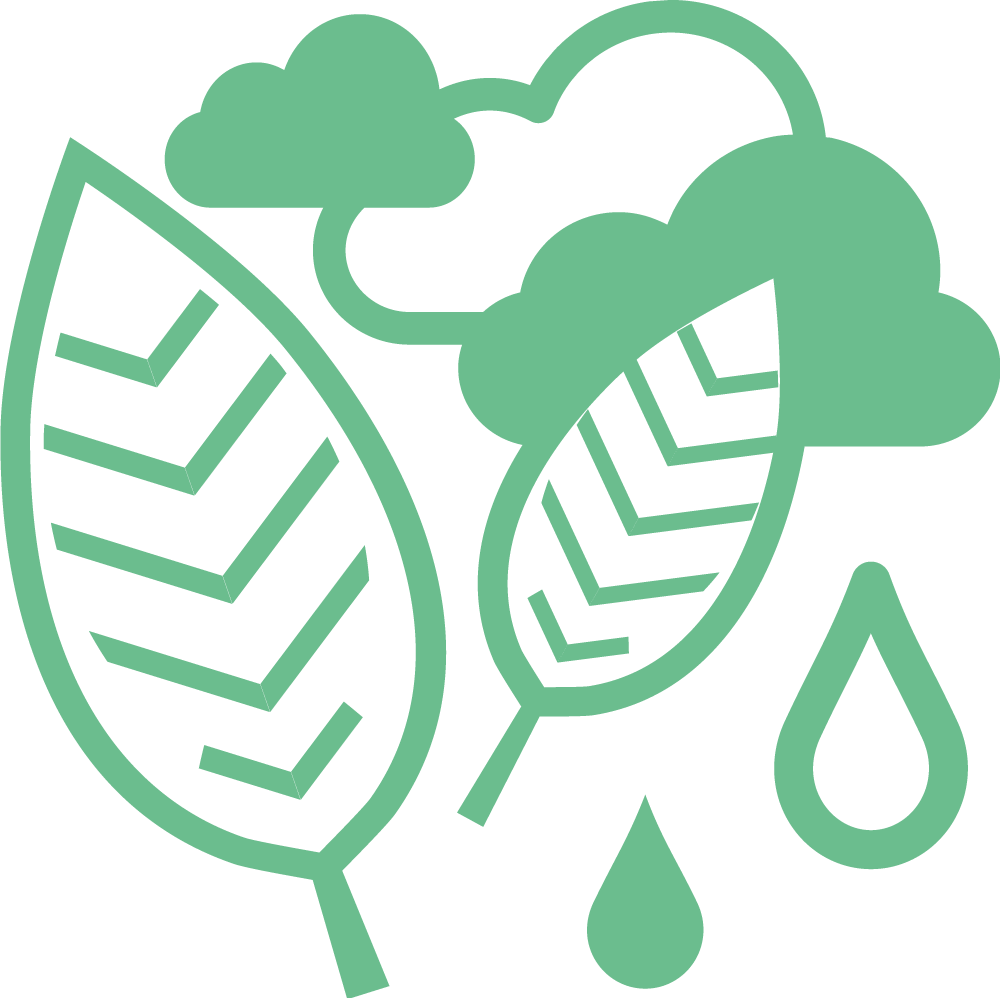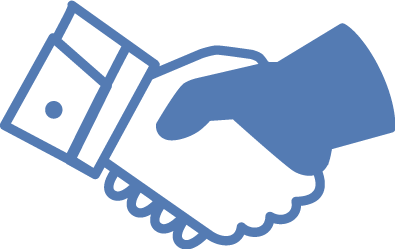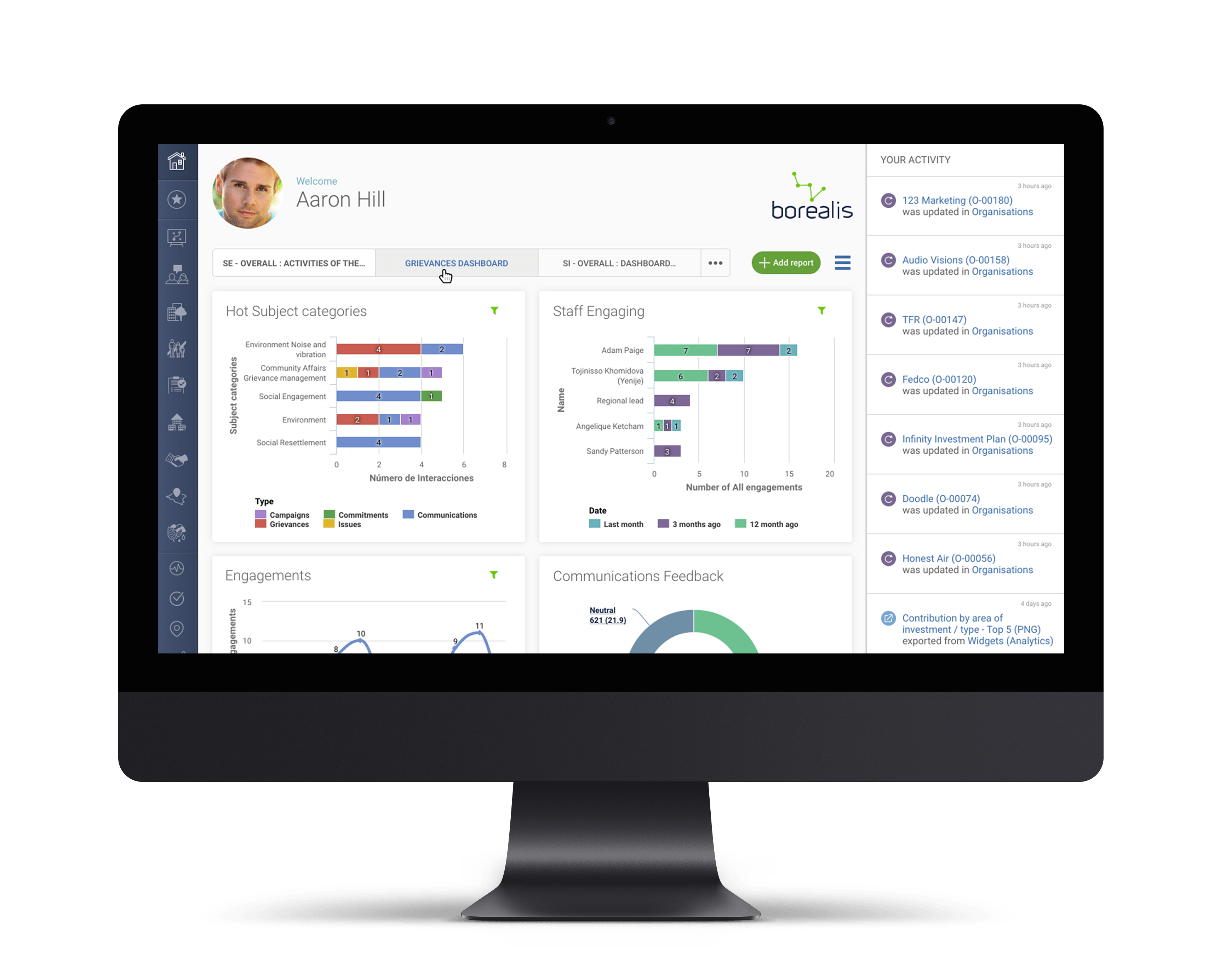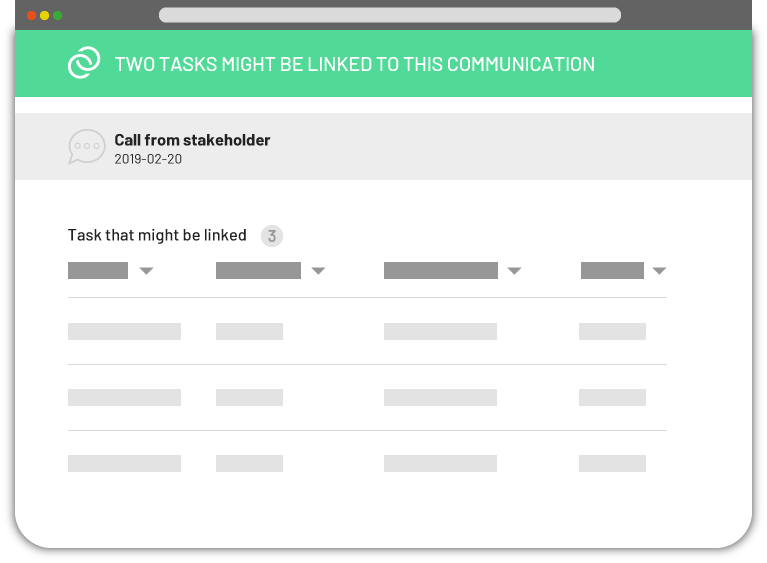Regaining
Stakeholder
Acceptance
How an oil & gas project in Chad turned community dissatisfaction, inconsistent compensation programs, and inadequate grievance management into a strong and sustainable social license to operate.
Main issues
- Social acceptance
- Compensation process taking too long
- Disruption of construction work
- Poverty
- Capacity building
Challenges
- Competing expectations
- Experienced but minimally trained national staff
- Management’s inexperience with community engagement in Chad
- Insufficient processes to support field staff, compliance requirements, and audit trail
- High operational tempo with land acquisition on the critical path
Sustainable engagement with not only the local community, but all stakeholders, is the key to success and profitability of extractive projects. The Boréalis application, supported by a highly professional, multidisciplinary team, enabled UHCL Chad operations to achieve its goal of a strong and sustainable social license to operate, clear processes to demonstrate compliance and a clear and common understanding (at every level of the company) of the criticality of sustainable community relations to the long term success of the business, and ultimately profitability.”
Nic Aulmann - HSSE & CR Manager at UHCL
The project
The company was incorporated in September 2011 and signed a production sharing contract with the Government of Chad in May 2012. It obtained exclusive rights to explore and develop oil & gas resources in 4 blocks. Community dissatisfaction arose due to inconsistencies between operators’ compensation payment programs, an inexperienced operator in Chad and lack of formal structure in compensation, stakeholder consultation and grievance management.
Daba Basin represents
2 of 4
blocks U
(approx. 600,957 acres)
4 new oil discoveries
since beginning of drilling
in January 2014
Most of oil reserves are at depth of approximately
1000 t0 1300 meters
Compensation of nearly
3000 peoples
for new exploration sites
2 oil discoveries
drilles by previous owners on blocks: Belanga (1978) and M'Biku (1994)
Outcomes
- Implementation of land access and community engagement methodologies
- 100% resolution of grievances, majority within 30 days
- Building trust and gaining communities’ “buy-in”
- Capacity building and training for an autonomous local team
- Planning and implementation of a social investment strategy
- Faster compensation process, improved transparency, reduced grievances and faster resolution of complaints
- Establishing transparent and fair distribution of donations
The problematic
However due to the speed of mobilisation and rapid up scaling of construction activities, lack of procedures or process and different expectations of the role and function of Community Relations personnel emerged at all levels, thus threatening compliance, accountability, and community support.
The Boréalis Expertise
The Boréalis Team was initially approached because of its extensive experience with both extractive projects and implementing robust solutions within developing cultures and economies. The team recommended the implementation of a tailored application solution which would clearly establish workflows and processes for all stakeholder engagement activities, and ensure transparent and compliant record keeping that would meet the requirements of all parties. The majority of this work was completed offsite in Canada with close cooperation with the Calgary-based management team.
Flexible Analytics enable custom KPIs
The highest priority was to support operations and maintain construction delivery schedules, while maintaining and strengthening UHCL’s social license to operate.
To achieve this Boréalis established a multi-disciplinary team of experienced field staff and mobilized them to Chad to support and mentor UHCL’s field CR Team. Collaborating closely with the current team, Boréalis experts quickly conducted a gap analysis against existing practices. They were able to rapidly develop and implement training and development, capacity-building and record keeping interventions that strengthened and supported UHCL’s field staff activities. In addition to align with the expectations of all stakeholders, this reassured senior management (including shareholders) of the compliance and transparency of both Chad operations and the Calgary Head office.
To maintain and bolster their social license to operate, UHCL Management in Calgary identified the following requirements for their CR strategy in Chad:
- Clear identification of stakeholders
- Clear accountability and audit trail for all interactions with stakeholders
- Transparent compliance with Chadian Government Regulations, Production Sharing Contract (PSC) requirements, Canadian regulatory requirements, and as signatory, to the Extractive Industries
- Transparency Initiative (EITI) requirements
- Uninterrupted and flexible support to rapidly evolving operations without disruption to construction activities, which were on a critical path

Inspired by this great success story?
Start writing yours today!




